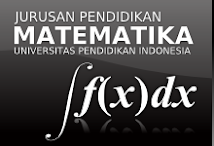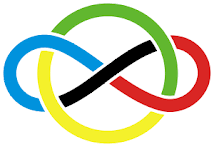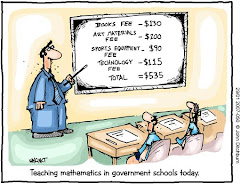Profil Tim Olimpiade Matematika Kota Banjar
Hari ini saya lahir
Ide mendirikan TOMIKOBA untuk mengikuti turnamen yang paling berbobot dalam bidang sains ini berasal dari kelompok mahasiswa-mahasiswa alumni sekolah menengah atas Kota Banjar yang sedang melajutkan studinya di berbagai bidang disiplin ilmu.
Kami merasakan bahwa sesungguhnya impian, harapan, motivasi dan rasa antusiasme yang tinggi terhadap cita-cita menjadi modal utama untuk maju.
Semoga web-blog ini dapat bermanfaat bagi kita semua
"If You Can Dream It, You Can Do It"
About Mathematics
Add & Edited By:
"-H2O-"
Mathematics is the body of knowledge centered on such concepts as quantity, structure, space, and change, and also the academic discipline that studies them. Benjamin Peirce called it "the science that draws necessary conclusions". Other practitioners of mathematics maintain that mathematics is the science of pattern, and that mathematicians seek out patterns whether found in numbers, space, science, computers, imaginary abstractions, or elsewhere. Mathematicians explore such concepts, aiming to formulate new conjectures and establish their truth by rigorous deduction from appropriately chosen axioms and definitions.
Through the use of abstraction and logical reasoning, mathematics evolved from counting, calculation, measurement, and the systematic study of the shapes and motions of physical objects. Knowledge and use of basic mathematics have always been an inherent and integral part of individual and group life. Refinements of the basic ideas are visible in mathematical texts originating in the ancient Egyptian, Mesopotamian, Indian, Chinese, Greek and Islamic worlds. Rigorous arguments first appeared in Greek mathematics, most notably in Euclid's Elements. The development continued in fitful bursts until the Renaissance period of the 16th century, when mathematical innovations interacted with new scientific discoveries, leading to an acceleration in research that continues to the present day.
Today, mathematics is used throughout the world in many fields, including natural science, engineering, medicine, and the social sciences such as economics. Applied mathematics, the application of mathematics to such fields, inspires and makes use of new mathematical discoveries and sometimes leads to the development of entirely new disciplines. Mathematicians also engage in pure mathematics, or mathematics for its own sake, without having any application in mind, although applications for what began as pure mathematics are often discovered later.
Etymology
The word "mathematics" (Greek: μαθηματικά or mathēmatiká) comes from the Greek μάθημα (máthēma), which means learning, study, science, and additionally came to have the narrower and more technical meaning "mathematical study", even in Classical times. Its adjective is μαθηματικός (mathēmatikós), related to learning, or studious, which likewise further came to mean mathematical. In particular, μαθηματικὴ τέχνη (mathēmatikḗ tékhnē), in Latin ars mathematica, meant the mathematical art.
The apparent plural form in English, like the French plural form les mathématiques (and the less commonly used singular derivative la mathématique), goes back to the Latin neuter plural mathematica (Cicero), based on the Greek plural τα μαθηματικά (ta mathēmatiká), used by Aristotle, and meaning roughly "all things mathematical". In English, however, the noun mathematics takes singular verb forms. It is often shortened to math in English-speaking













Tidak ada komentar:
Posting Komentar